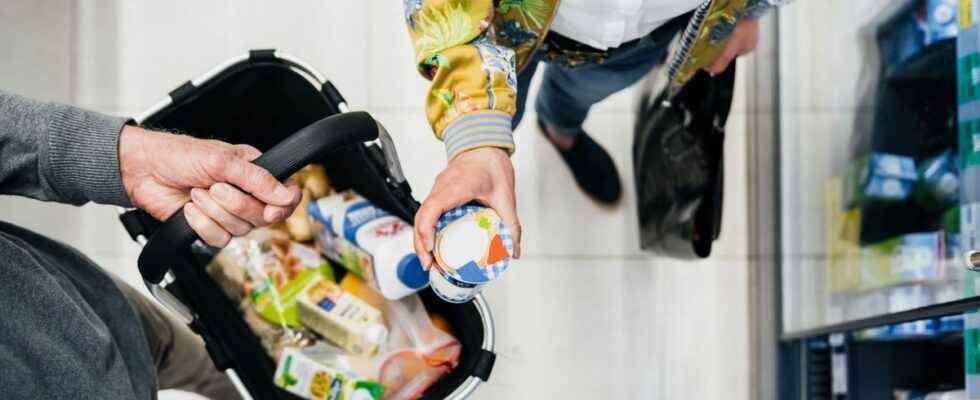Published on
Updated
Reading 2 mins.
Food, fuel and electricity prices have risen sharply in recent months. To help the French face this crisis, the Minister of Economy Bruno Le Maire has proposed the establishment of an anti-inflation basket, which should see the light of day next March.
Everyone has seen it by going shopping, filling up on gas or looking at the amount of their bills: prices in general have risen sharply in recent months.
Setting up an anti-inflation basket
To help the French face this price increase which affects all sectors, the government has proposed the establishment of a new device, an “anti-inflation” basket. Objective: to help consumers manage their budget by offering them a basket made up of a selection of affordable products. Each brand that wishes to offer it may include the products it wishes, from among five product categories: hygiene, cleanliness, fresh, frozen and groceries. The consumer, for his part, will be able to choose the products he wants, whether this is the entire basket or not.
A device planned until June 2023
This so-called “anti-inflation” basket should therefore see the light of day next month and will benefit from a limited lifespan, until June 2023. However, everyone will be able to have access to it without conditions of resources. And what products will be offered? The government does not specify for the time being the precise contents of the basket, but already indicates that it will contain neither confectionery nor alcohol.
And according to the first known indications, this basket should include around fifty everyday products, including five fruits and vegetables, including at least three organic, white and red meat, including at least one labeled, fish, starchy foods and hygiene products. As for the brands offered, the supermarkets will have the choice: organic products, private labels or first prices.
A basket, but at what price?
The cabinet of Olivia Grégoire, the Minister Delegate for Trade, wanted to demolish a misconception about this anti-inflation basket with our colleagues from Le Parisien: “This is not a discount basket with products sold at bargain prices”. However, the signs should have their hands on the price of this basket, provided that it impacts me neither the producers and farmers, nor the industrialists.
Which means for large retailers to cut back on their margin to finance these baskets. This may explain the reluctance of brands to mention this device. Because for the time being, only Lidl stores have advanced on the implementation of this basket, announcing its availability on the shelves for the 1er next March.
